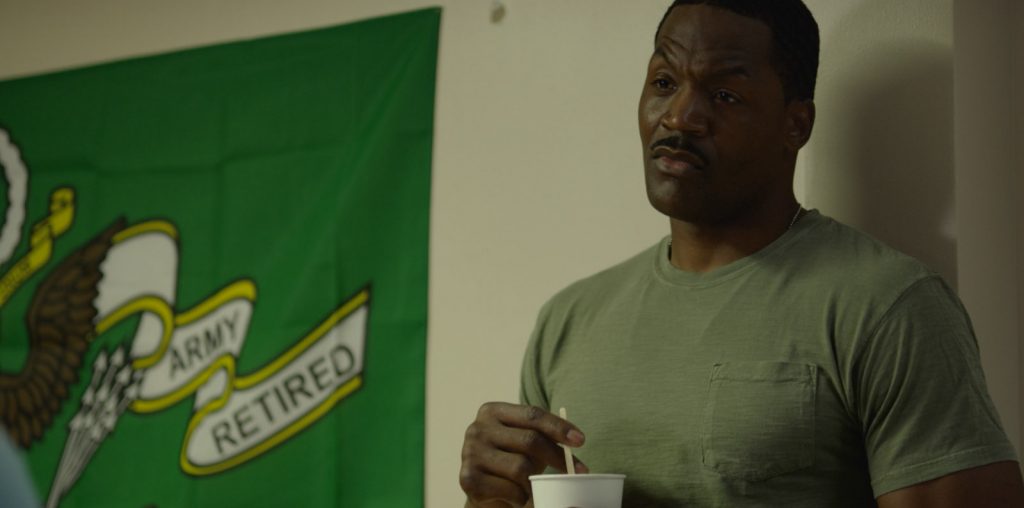
Jay Giannone’s disease-of-the-week drama It Snows All the Time betrays its faith-based origins early on. All the trademarks of this cinematic sub-genre come hurling at you like an avalanche: Lifetime Network production values, overt sappiness, simplistic messaging about kindness and perseverance, dumbed-down dialogue, a hokey piano-led score, frequent references to the Lord Almighty, and God forbid if anyone curses. There’s nothing wrong with the notion of a faith-based feature – it’s been proven that there’s a massive audience for that type of fare – but so far, films of its ilk seem to prioritize selling an ideology over, you know, being any good. Lord forgive me.
Based on a true story – a claim this film uses as a shield against any potential backlash – the plot follows Jesse (Erich Hover), who arrives from Los Angeles to his hometown somewhere in Omaha to discover that his father, Paul (Brett Cullen), seems to be losing it. The man got fired for a “golf cart incident,” forgets his sons’ names, and spends his free time laughing at meerkat videos. That’s not to mention the yard’s in terrible shape. A series of testing and scanning confirm what the family has been dreading: Paul has dementia.

“…series of testing and scanning confirm what the family has been dreading: Paul has dementia…”
The family consists of Paul’s wife, Anne (Lesley Ann Warren), and Jesse’s brothers, the somewhat-cynical Art (Sterling Knight) and blank-as-cardboard Tony (Giannone). Before embarking on the inevitable father-son fishing trip, Jesse encounters old acquaintances, including ex-girlfriend April (Taryn Manning). The film culminates in a search party, then ends abruptly in a hospital room.
The jarring ending doesn’t come as a surprise. The (non) narrative has nowhere to go, Giannone and co-scribbler Eric Watson having written themselves into a corner. In order for a spiritually enlightening resolution to occur, the events leading up to it should contain at least a few singular moments. It Snows All the Time represents a series of strung-together clichés, lacking any semblance of psychological depth, and failing to impart a shred of insight to those suffering from the focal affliction. And no amount of post-credit sequences or “based on a true story” proclamations will atone for this cardinal sin.

"…Lesley Ann Warren [manages] to add a spark of class..."



My mother has a severe case of dementia. She’s 92.